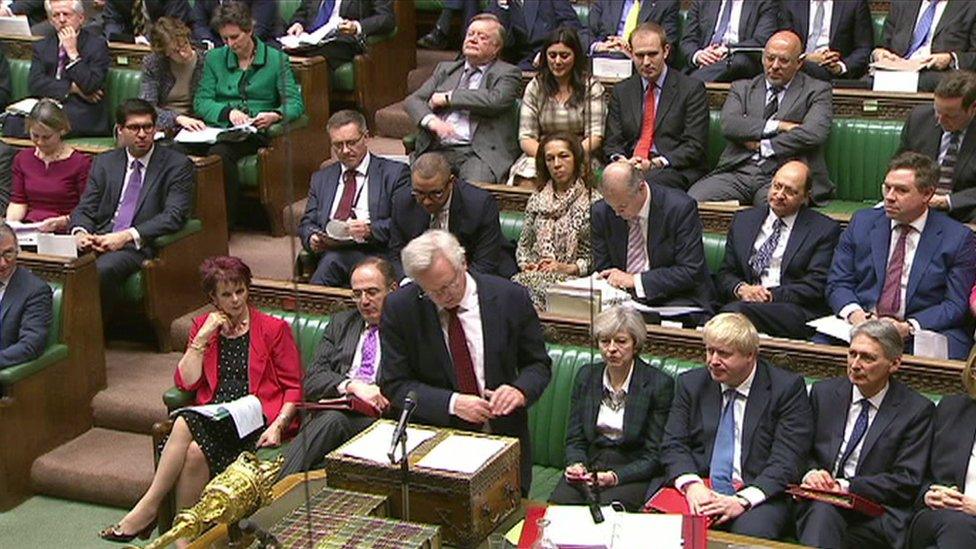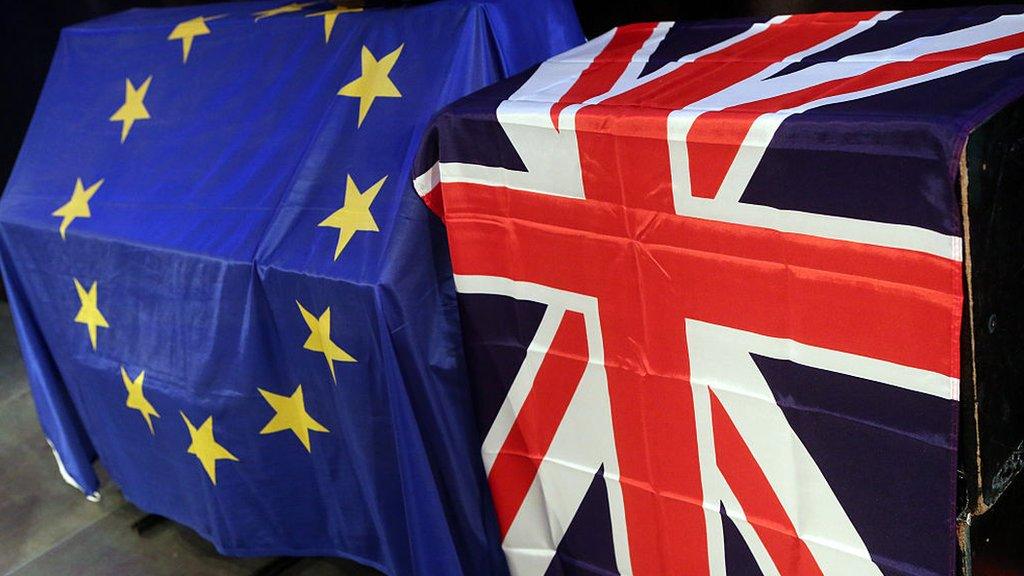Five take-outs from the Brexit bill
- Published
- comments

I've got five take-outs from the Article 50 bill so far.
1: No retreat, baby, no surrender
There may be 101 pages of amendments down so far, but the government is in no mood to take any of them on board; on the contrary, their aim is to repel boarders, to the point where they would even resist the one amendment being mooted by the Brexiteer camp, which would aim to forbid ministers from accepting any extra time to extend the two year negotiating window specified by the EU's Lisbon Treaty. Ministers do believe that the EU's Michel Barnier's strategy is to enmesh the UK in a long-term negotiating limbo, perhaps including a post-Brexit transitional deal, but they don't want their hands tied.
2: Amend-o-rama
Many of the amendments, thus far, look like the product of an amendment generating bot, standard stuff about laying reports and regular debates. But ministers are wary of some of the substantive ones setting conditions - and in particular of the emotive issue of EU nationals resident in Britain, a matter now featuring regularly in most MPs' constituency surgeries. There is strong pressure for some kind of unilateral move for the UK to guarantee their right to remain - but, the government retorts, if that was passed, its backers would be to blame if one or two European states didn't reciprocate and allow UK nationals to stay within their borders.
3: It's tough being Keir Starmer
In the debate, Labour's frontbench Brexit spokesman, Sir Keir Starmer, looked and sounded like a lawyer delivering a plea in mitigation on behalf of a convicted prisoner. Early in his speech, he appealed to the Commons for a courteous hearing - something his opposite number, David Davis, would never have got away with. It just about worked, because the House genuinely wanted to hear what he had to say, but he does suffer from the lawyer-turned politician's tendency to address MPs as if they were the Court of Appeal. But leaving aside the style points, forging a line on Brexit which can stitch together the strongly pro-Brexit and strongly pro-Remain elements of Labour's heartland, let alone unify the deeply divided Parliamentary Labour Party, may prove an impossible challenge.
4: DD rising
Whether it's in the leadership ratings in Conservative Home, where he has now edged ahead of the prime minister herself, or in the growls of approval from his colleagues in the regular statements in the chamber, the Brexit Secretary, David Davis, increasingly commands the status of second minister in this government. This is not a wholly comfortable place to be - flying perilously near to the Sun - but as someone reconciled, not that long ago, to seeing out their parliamentary career on the backbenches, I suspect Mr Davis can bear it.
5: Bit players need to play their part.
The Lib Dems have sought to position themselves as the last champions of the Remain cause (although two of their MPs, Norman Lamb and Greg Mulholland have promised to abstain on the Article 50 Bill). But they can't claim to be the arch-opponents of Brexit and fail to maintain a presence for the big debates on it - and their leader, Tim Farron, had a chastening time at PMQs when this was pointed out. In truth, their much-reduced parliamentary party has been pretty bad at showing the flag, since the last election. It's rare to see all nine Lib Dem MPs on the green benches. This is one area where they are not very good at remaining.
- Published30 December 2020

- Published28 March 2017

